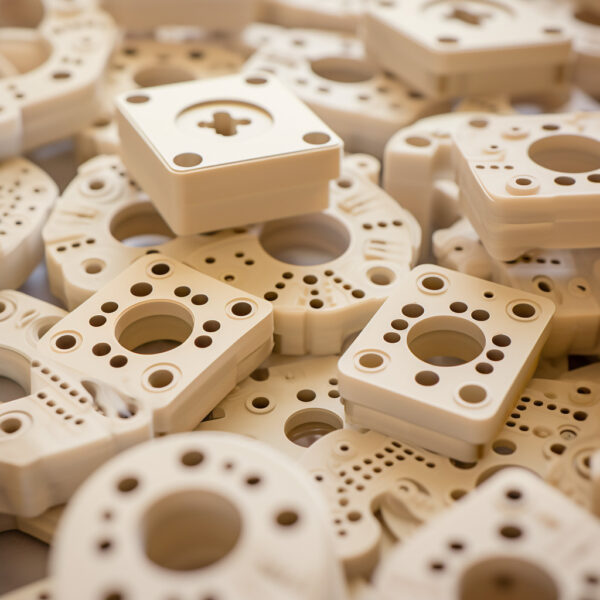
When it comes to advanced polymers like PEEK (Polyether Ether Ketone), performance isn’t just about raw material—it’s about how you process it. At ARKPEEK, we don’t just manufacture PEEK components—we engineer them for excellence. One critical step we incorporate for peak performance is annealing.
But what is annealing for PEEK, and why should industries that demand precision and durability—like aerospace, medical, and semiconductor—care about it? Let's explore the science, process, and why ARKPEEK’s annealing expertise ensures superior product stability and performance.
Annealing is a thermal treatment process where the polymer is heated to a specific temperature range, held for a defined period, and then cooled slowly. While this concept originated in metals, for high-performance polymers such as PEEK, annealing plays a transformative role in optimizing molecular structure.
From a molecular perspective, PEEK chains often become entangled, twisted, or locked in place during molding or extrusion. These internal stresses, if untreated, can lead to warping, cracking, or dimensional instability. Annealing offers the chains the energy and time to reposition themselves into a more stable, lower-energy configuration.
PEEK is a semi-crystalline polymer, consisting of both crystalline and amorphous regions. The annealing process impacts both:
Crystalline Regions: Annealing promotes the growth of more perfect and larger crystals. This enhances:
Mechanical strength
Thermal resistance
Chemical resistance
Amorphous Regions: These less ordered sections of the polymer benefit from stress relief and molecular relaxation, reducing risks like:
Residual stress fractures
Dimensional instability
Creep deformation under load
PEEK has a glass transition temperature (Tg) of ~143°C and a melting point (Tm) around 343°C. The annealing window typically falls between these two temperatures. At ARKPEEK, we fine-tune our annealing protocols to:
Unlock chain mobility without risking deformation.
Achieve a balance between crystallinity and toughness.
Prevent oxidation or degradation, often applying inert atmospheres when necessary.
We also employ gradient annealing, a controlled step-wise cooling process, especially for thick-walled parts, complex geometries, or multi-layered composites. This ensures stress is uniformly dissipated across the part, avoiding internal cracking or surface defects.
You should consider annealed PEEK components when:
Tight dimensional tolerances are critical (e.g., aerospace connectors, medical implants).
Parts undergo post-machining, which can introduce additional stress.
Operational temperatures approach PEEK's performance limits (~260°C continuous use).
Applications demand resistance to stress cracking and deformation over time.
At ARKPEEK, all these considerations are integrated into our customized annealing procedures, ensuring our customers receive parts that perform reliably under the harshest conditions.
Enhanced Dimensional Stability
Parts maintain their shape and tolerances even after prolonged thermal cycling.
Increased Mechanical Strength
Superior crystalline structures deliver higher load-bearing capacity.
Improved Chemical Resistance
Crystallinity enhances impermeability to aggressive chemicals.
Superior Thermal Performance
Reliable function in high-temperature applications without degradation.
Reduced Internal Stress
Lower risks of cracking, warping, or failure during service life.
Improper annealing can:
Over-crystallize PEEK, making it brittle.
Cause surface oxidation (yellowing or cracking).
Induce interfacial stress in composites.
Our proprietary ARKPEEK annealing protocols—tailored to the part’s size, complexity, and application—mitigate these risks, delivering products that outperform generic PEEK solutions.
Annealing isn’t just a process—it’s a critical value-adding step. With ARKPEEK, you get more than high-grade PEEK material; you get engineering expertise that ensures each part is optimized in crystallinity, stability, and durability.
If your project requires precision, performance, and reliability, insist on ARKPEEK’s annealed PEEK products.